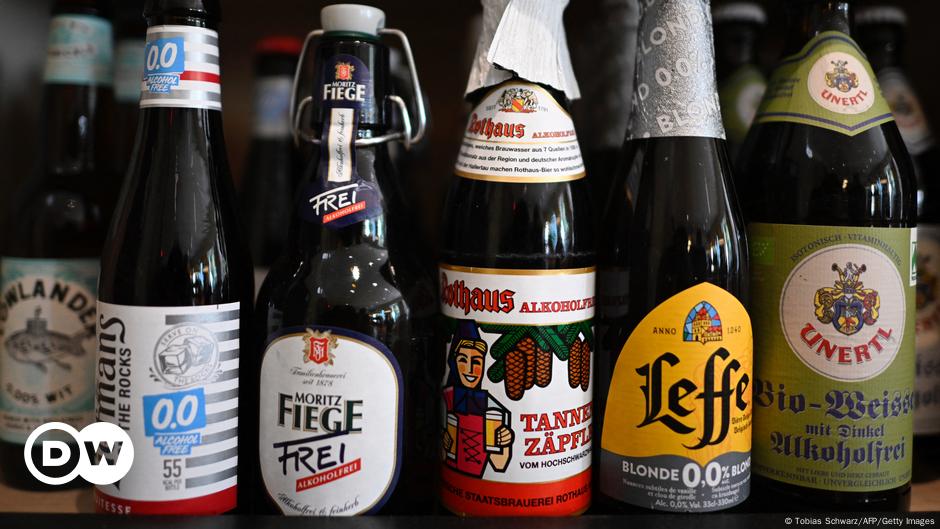Germany’s non-alcoholic beer production has enjoyed a boom in the last 10 years, according to a new report. Low-alcohol drinks like Radler are also seeing increased sales.
Germany’s Federal Statistical Office, Destatis, published a new report on Tuesday highlighting that drinkers across the country are increasingly turning to alcohol-free varieties for their after-work or weekend choice of beer.
In the last ten years, the production of non-alcoholic beer has more than doubled in Germany. In 2023, that amounted to some 556 million liters (147 million gallons) and €548 million ($593 million) in sales.
The new statistics were published to coincide with International Beer Day, which is August 2.
Destatis also noted that the production of low-alcohol drinks like Radler, a mixture of beer and lemonade, has also increased from 328 million liters in 2013 to 363 million liters in 2023.
“However,” the report said, “there is still much more beer with alcohol being produced” in Germany than non-alcoholic.



I take offense they are called “alcohol FREE”. That’s just false advertisement, whatever is in the fineprint.
Read the comments in this post. They are worded like “yeah, I like to have a beer sometimes, but without alcohol, so I chose an “alkoholfrei” beer”. When they, in fact, are drinking an alcoholic brewage, still.
Because in many countries 0.5 is considered non-alcoholic and most countries don’t differentiate between non-alcoholic and alcohol-free, so it’s legally not false advertising.
Also you physically cannot get drunk when drinking 0.5 abv beer which means in terms of drunkeness there’s functionally no difference if people drink 0 abv beer or 0.5 abv beer. Recovering alcoholics can have a response to but that can be due to sensory cues making the alcoholic believe they’re getting drunk and not the actual ethanol in the drink. Recovering alcoholics (at least to my knowledge) are also recommended to steer clear of alcohol free beer due to the same sensory cues. So who really needs the distinction between non-alcoholic and alcohol-free?
And as a follow-up. If there really is the need for distinction should that distinction exist for food as well? Do we need a disclaimer that ripe bananas can contain 0.2 to 0.4 ABV of alcohol?